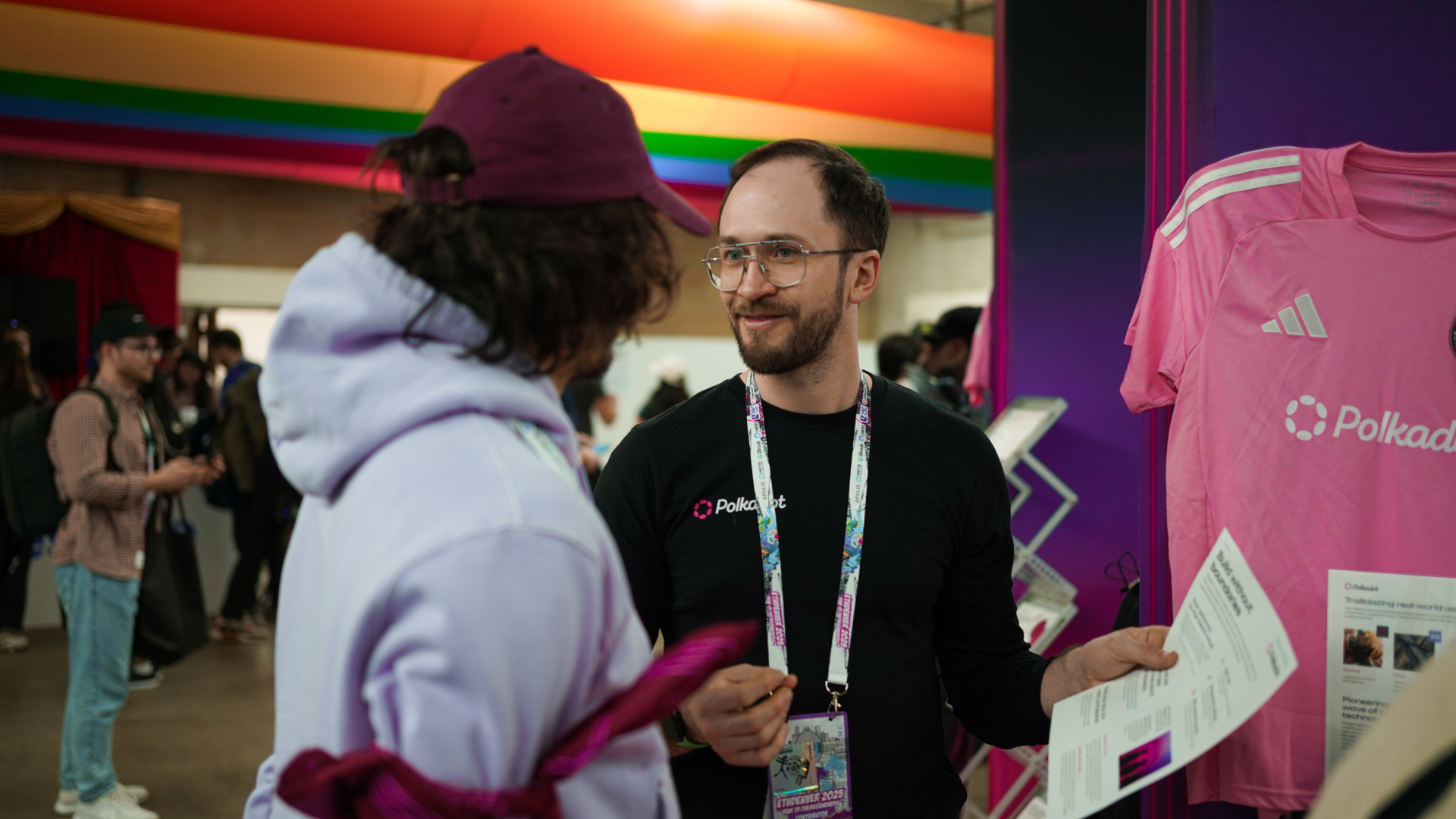Polkadot Blockchain Academy: Targeted Education for Builders and Founders
Polkadot Blockchain Academy, which celebrates its second birthday later this year, is already meeting the needs of two distinct Web3 groups.
 By Polkadot•January 24, 2024
By Polkadot•January 24, 2024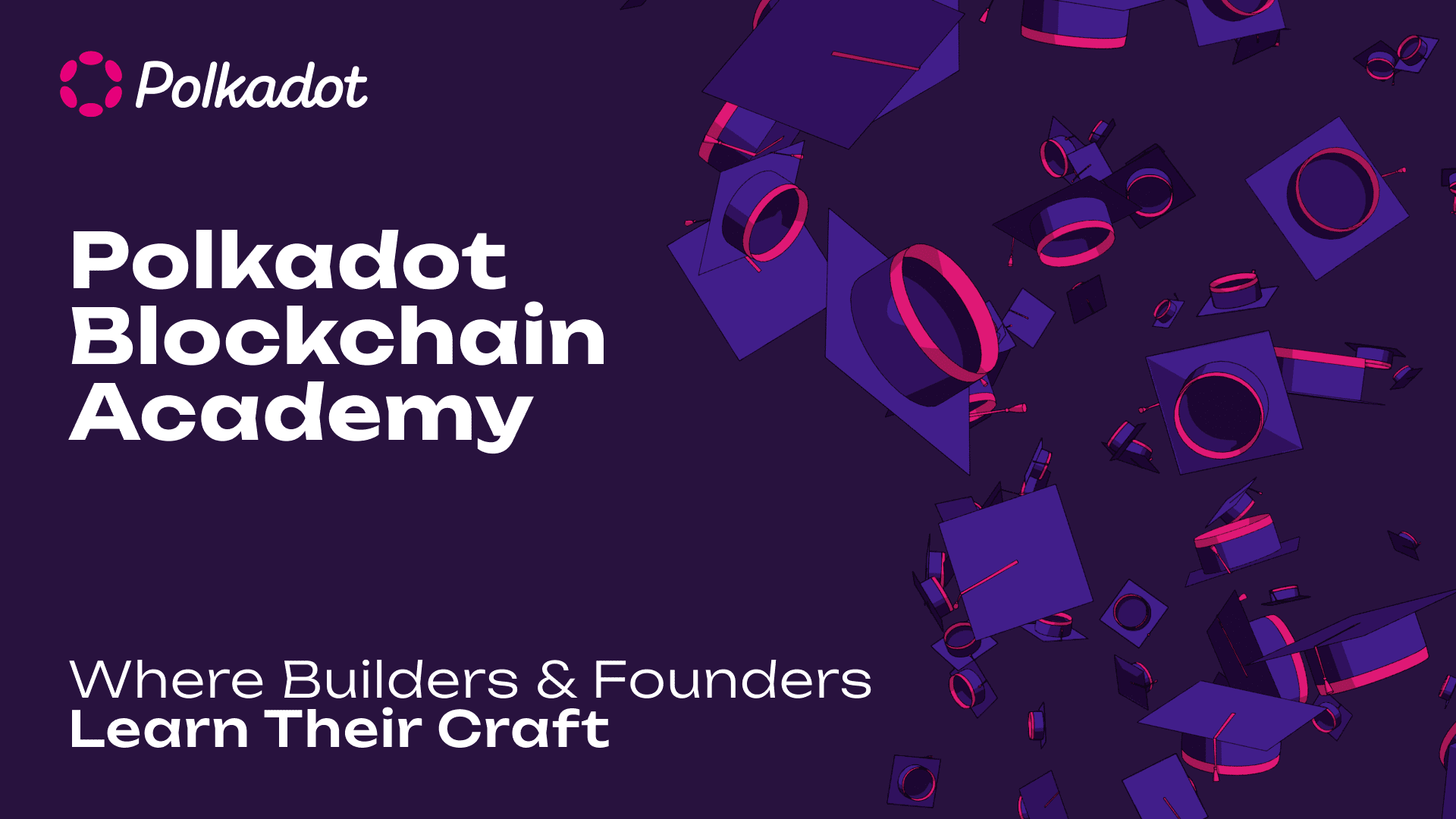
If you’re launching a great concept at the bleeding edge of Web3 technology, there are two things that are vitally important for success.
First and foremost, you need to have the highest quality engineering talent: individuals with the capability and ambition to help you maximize the potential of your project. Developers who are happy to get their hands dirty at the coalface while writing outstanding code and unearthing new possibilities for blockchain are a valuable commodity indeed.
Secondly, and just as importantly, you want to develop your own understanding of blockchain and the people taking it forward. You’ll want to have a strong understanding of how cryptography drives the decentralized world, alongside some great networking channels to help you collaborate with the best in the business.
The Polkadot Blockchain Academy (PBA), since its inception in August 2022, has made such rapid progress that it can now confidently satisfy both these key objectives. And applications for Wave 5 in Singapore, starting May 20th, are open now!
Now split into two separate curricula - one is designed for core developers, the other is specifically tailored for founders - PBA produces individuals who are readily equipped to put the next great idea for Web3 to the test. An early-stage founding team needs visionaries and entrepreneurs, but it needs them to have a conceptual understanding of what exactly the engineers are building - and it also needs those engineers to build out the foundations.
Before PBA: Thin pickings
It was after the first surge of public interest in cryptocurrencies in 2017 that established universities began looking into the possibility of offering blockchain-centered courses to sit outside their regular degree courses.
Such courses - at places like MIT, Cornell, Columbia, Oxford and Cambridge - are reasonably comprehensive. But they’re also largely theoretical, providing a grounding in the mechanics of various blockchain protocols, the advantages they offer over traditional tech infrastructure, plus security and privacy principles, decentralization, and so on. These foundational courses largely serve to stimulate curiosity - they have no deep practical application.
Other programs are different, offering accelerated vocational training which caters for individuals with some knowledge of cryptography and digital assets. These courses feature more granular and technical education.
But even these are not really enough. You can’t emerge from one of these courses and start coding the next iteration of an established Web3 tech stack, or even join a team of engineers as a junior developer.
A relevant curriculum
That’s obviously where PBA comes in - because it is designed to be both theoretical and also applicable to what is current within Polkadot. This mean it is producing highly skilled developers who will be ready to hit the ground running, and after three completed waves of PBA, the evidence suggests that’s exactly what’s happening.
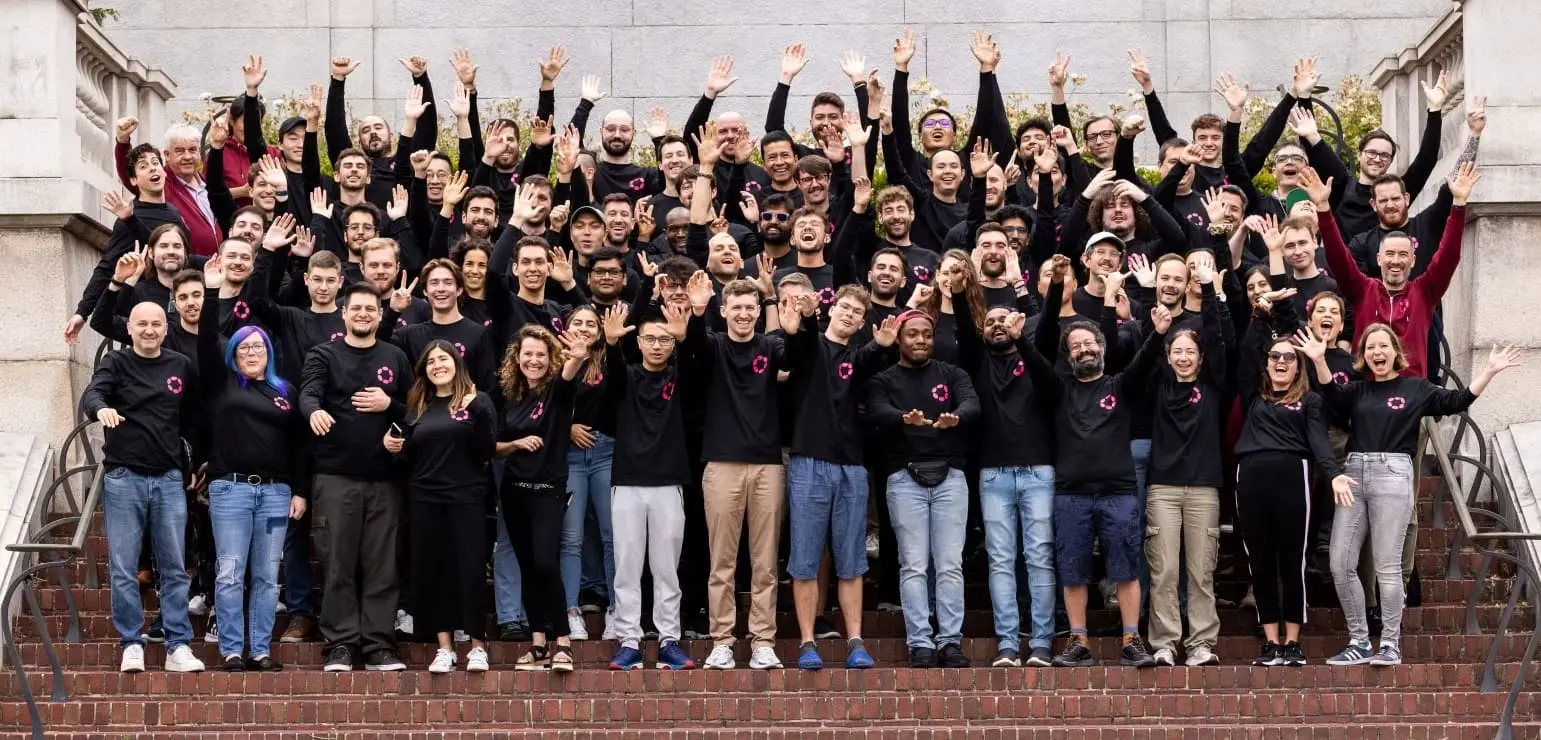
Among the success metrics, the following stand out:
- Of 160 graduates from the first three waves, 46% have found full or part-time roles in Polkadot within three months of leaving PBA
- 57 were hired directly by Polkadot ecosystem projects, including Parity Technologies and Web3 Foundation
- Others have chosen to start up their own Web3 projects, of which 20 are already up and running
- Six graduates are known to have joined the Fellowship, a relatively new initiative to create an expert body of developers who are integral to Polkadot’s pioneering decentralized governance structure
As Derek Yoo, the founder of Moonbeam, explains: “The critical ingredient for building Web3 protocols is talented software engineers. But finding engineers with the right knowledge is very challenging. PBA consistently produces excellent candidates with the right skills for us to hire.”
Branimir Rakic, the founder of OriginTrail, identified a particular engineer, Nikola, to send to PBA. Afterwards, he reported: “Nikola has emerged as a key figure, armed with the knowledge acquired from the Academy, propelling us forward and playing a pivotal role in the successful launch of our parachain."
New devs often lack skills
In the wider world of Web3 at large, the impact of PBA has not yet been felt, however. There is, it seems, a global skills gap hampering recruiting efforts: if teams need to grow or even just replace existing talent, the new people coming in are not best equipped to keep the fires burning.
A leading Web3 data analysis provider, Electric Capital, reported that 52% of developers classified as “newcomers” - that is those who had worked in crypto for less than a year - had lost their jobs during the course of 2023.
By contrast, the most established developers, those who had worked in crypto for between more than two years, were up 52% over five years and at all-time highs by the end of last year.
While there may be other factors at play, the Electric Capital findings were a worrying indicator that the quality of education received by novice developers who have not had the benefit of a PBA education is simply not good enough to guarantee a sustained career.
PBA graduates, on the other hand, can have better expectations of success.
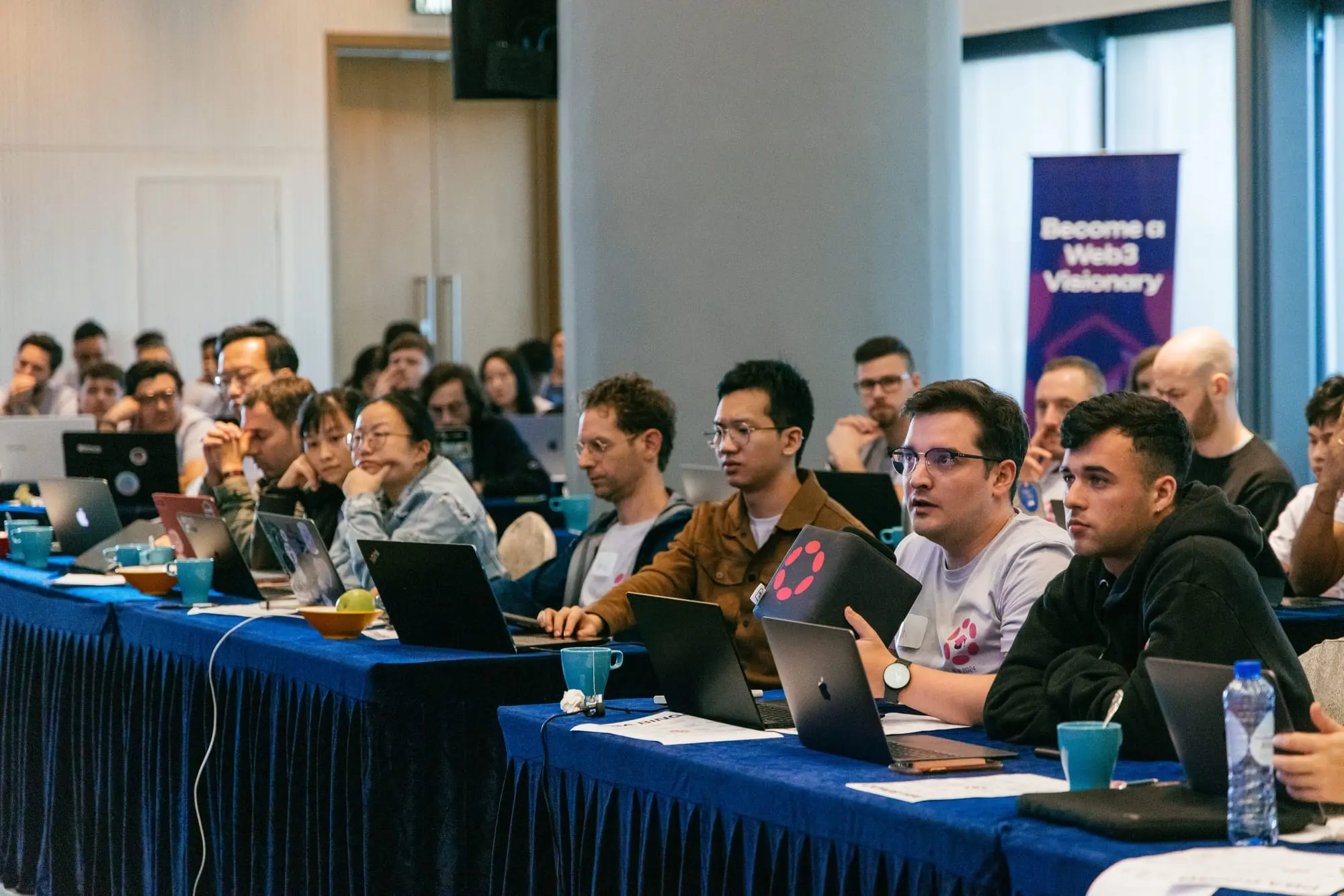
Alex Theissen, Smart Contracts Execution Lead at Parity Technologies, a leading technical contributor to Polkadot, says: “We've made some strong hires from the PBA. I feel PBA gives us access to some developers that a normal recruiting process would not; it seems to motivate really strong developers to come to work at Parity or on Polkadot. PBA also makes onboarding a lot quicker and easier. In most instances, we get to productivity fast.”
Fresh focus on founders
So if it’s accepted that the great software engineers of Web3 need better education (and that PBA is actively addressing that necessity), then what about the founders, the entrepreneurs, the ones with the big ideas, those hunting that all-important VC investment that will drive future waves of adoption in the space?
Until Wave 3 of PBA got under way in Berkeley, California in the summer of 2023, this was a group whose needs had largely been ignored. It was in Berkeley, however, that PBA first offered its Founders Track, and the course proved so successful that it is now integral to PBA’s future.
The Founders Track aims to help its students understand fundamental concepts of cryptography, economics and game theory, and how they relate to Blockchain, Polkadot itself and Web3 application design.
It explores the essential processes of building a business, including aspects like product-market fit, community-orientation, governance, talent, marketing, legal & regulation issues.
It provides exposure to Polkadot’s ecosystem, unlocking major networking opportunities with ecosystem and industry experts at a global level (and this is one of the main advantages of PBA being an in-person only experience).
And there’s more: guidance on the entire process around fundraising, plus advice on acceleration opportunities, mentorship, building support and grant-based funding. Importantly, it provides a validation service that helps founders refine their idea so it can be effectively molded into a future Polkadot project.
Polkadot's APAC expansion
PBA, and Polkadot at large, is making a concerted effort to focus on the Asia-Pacific (APAC) region in early 2024. Wave 4 is wrapping up in Hong Kong right now, and this will be followed by Wave 5 in Singapore from May 20th to June 20th. Meanwhile, sub0, the Polkadot developer conference, is slated for March 12th and 13th in Bangkok.
So, why APAC? Perhaps surprisingly, considering the general lie of the land not all that long ago, APAC has jurisdictions offering some of the most clear and consistent regulatory guidelines in the world.
Hong Kong’s government, for instance, has provided a licensing framework that allows retail investors to trade crypto. In Singapore, Ripple Labs and Coinbase - two major players in the space who have hit roadblocks in other parts of the world - have secured licenses of their own that will allow them to bolster their growth in the APAC region.
On top of this, APAC is producing an exciting generation of “digital natives”, young entrepreneurs who have grown up in an educational set-up that has valued tech more highly than other parts of the world.
These people are converting the old “Made in Asia” narrative that drove the “old” global tech revolution into a “Born in Asia” storyline that magnifies the potential that people in APAC have to make a transformative difference in global tech, and by extension within blockchain and Web3.
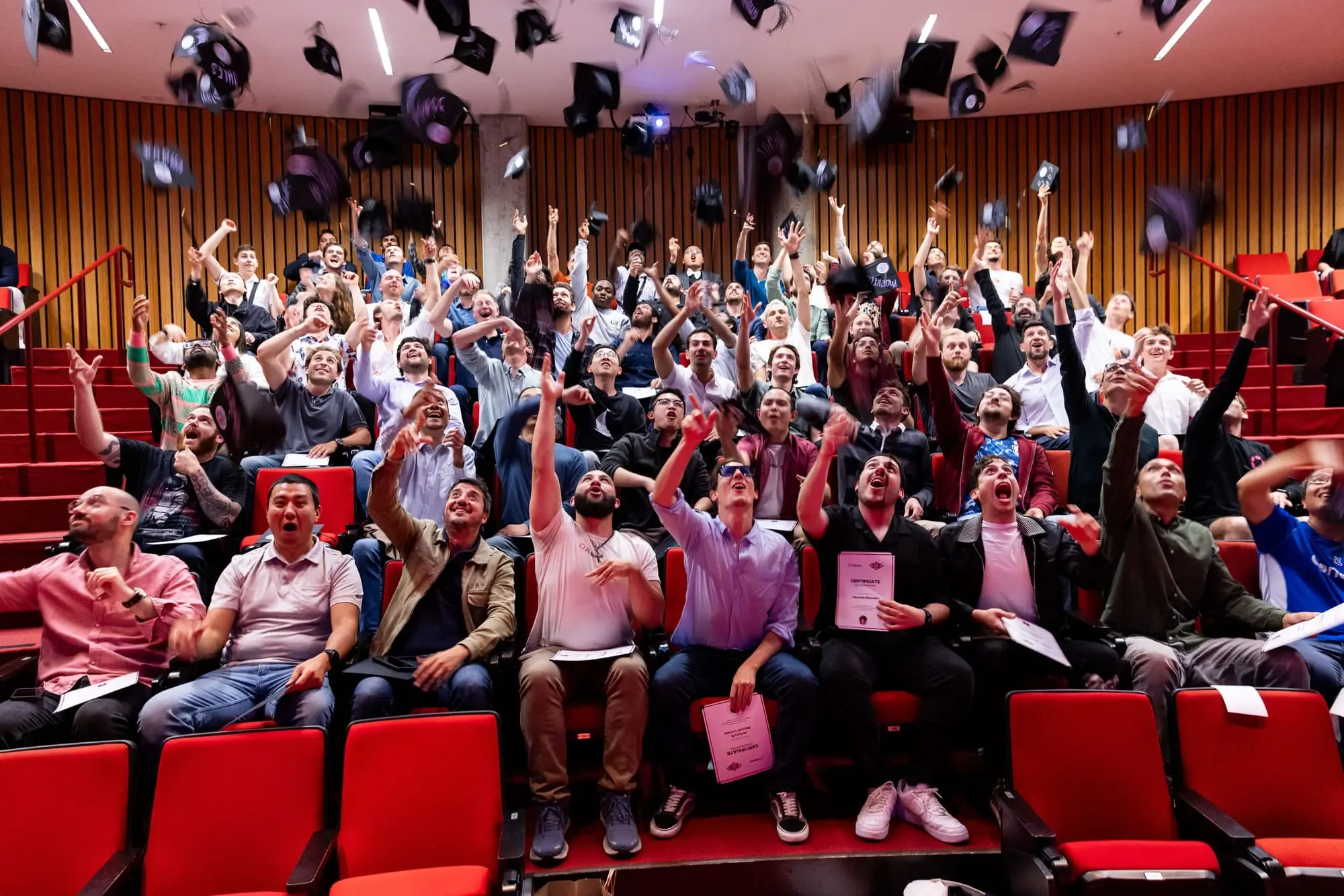
Wherever PBA goes in the world, one of its most important principles is to bring together the people who are building on Polkadot and the people who are learning about it.
It’s the best chance you will ever get of finding out why people have chosen Polkadot, and what sets it apart from the Web3 crowd as both a community and as a tech stack.
Big upgrades on the way
And this might be the best time of all to apply: 2024 could be one of the most exciting years yet for the network, as the technology adjusts to allow “coretime” to take over from the parachain model. An appreciation of Polkadot as a computational resource as opposed to a collection of chains - and what precisely this involves - is an important new concept to take on board.
By spending a month at PBA, you could be up close with the people who are helping direct this onward movement. Moreover, they could be the same people who will help you define your career, whether you're trying to launch a product on Polkadot or simply looking for a role within the ecosystem.
Being part of PBA doesn’t end on graduation day either. Previous cohorts are already busy organizing their own alumni events, and official get-togethers are scheduled to coincide with major ecosystem events like sub0 and Decoded too. The Academy provides continuous learning opportunities after graduation, with a dedicated communication channel for alumni to share support and weekly online meet-ups.
PBA will always be free, and there will never be any obligation for students to be involved in Polkadot or Web3 once they graduate. But if you don’t fully satisfy your curiosity about Web3 and Polkadot by giving it a go, you’ll never know what you might be missing out on.



